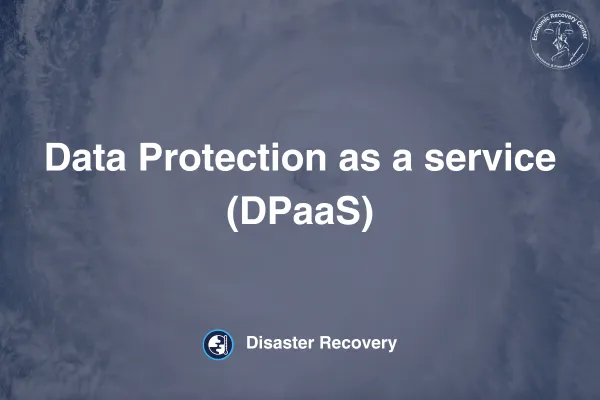
Data Protection as a service (DPaaS)
Data Protection as a service (DPaaS)
To view the full blog click here
What is data protection as a service (DPaaS)?
Data protection as a service (DPaaS) involves managed services that safeguard an organization's data. These services are often cloud-based and sold by subscription, and include service-level agreements (SLAs) between the vendors and customers.
DPaaS is either backup as a service (BaaS) or disaster recovery as a service (DRaaS). Customers outsource their data backup, recovery and/or disaster recovery to a service provider. The provider fully or partially manages the services.
Key aspects of DPaaS include the following:
SLAs. These agreements specify requirements, including backup frequency, restore times, data retention policies and snapshot strategies. SLAs vary by application type based on recovery point objectives (RPOs) and recovery time objectives (RTOs).
Storage options. Customers choose storage media types -- disk, flash, tape or cloud -- based on data urgency, or vendors can select media to meet SLAs.
Responsibilities. Providers manage monitoring, upgrading and maintaining the service.
Is data protection as a service important?
Yes, data protection as a service (DPaaS) is important for several reasons:
Security: With the increasing frequency and sophistication of cyber threats, businesses need robust data protection measures to safeguard their sensitive information. DPaaS providers offer security solutions such as encryption, access controls, and threat detection to protect data from unauthorized access, breaches, and other security risks.
Compliance: Many industries are subject to strict regulatory requirements regarding the handling and protection of sensitive data, such as the General Data Protection Regulation (GDPR) in the European Union or the Health Insurance Portability and Accountability Act (HIPAA) in the healthcare sector. DPaaS providers help businesses ensure compliance with these regulations by implementing appropriate security measures and assisting with data governance.
Cost-effectiveness: Outsourcing data protection to a third-party service provider can be more cost-effective than building and maintaining in-house infrastructure and expertise. DPaaS providers typically offer scalable solutions that can be tailored to the specific needs and budget constraints of businesses.
Data recovery and continuity: In the event of data loss or corruption due to factors such as hardware failure, human error, or cyber-attacks, DPaaS providers offer data backup, recovery, and disaster recovery services to minimize downtime and ensure business continuity.
Expertise and support: DPaaS providers have specialized expertise in data protection and security, allowing them to offer advanced solutions and support to their clients. Businesses can benefit from access to knowledgeable professionals who can help them assess risks, implement best practices, and respond effectively to security incidents.
Ready to Rebuild and Recover?
If your business has been affected by a natural disaster, you don't have to face the path to recovery alone. Explore how an Economic Injury Disaster Loan (EIDL) can be the lifeline your business needs. Don't let setbacks define your journey. Visit MyEIDL.com today to apply and check your eligibility for an EIDL Loan. Secure your business's future now—because resilience is the cornerstone of success.